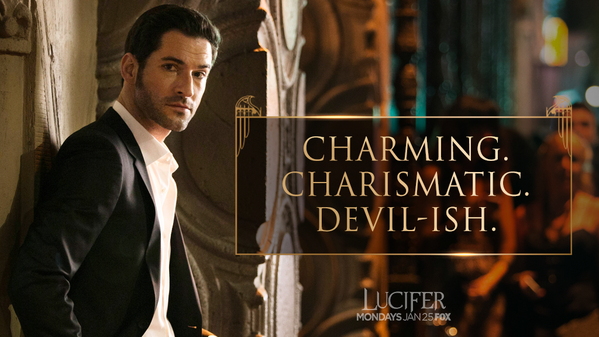 Warning: This post is going to be just chock full of spoilers, so if you haven’t watched all three series, go do that and then read on!
Warning: This post is going to be just chock full of spoilers, so if you haven’t watched all three series, go do that and then read on!
The last couple of weeks, I’ve been watching and re-watching (and re-re-watching) Shetland, the crime drama based on books by Ann Cleeves. It is a truly astonishing piece of work, and not just because of the superb acting by Douglas Henshall (as DI Jimmy Perez), Alison O’Donnell (as DC/DS Alison ‘Tosh’ MacIntosh), and the rest of the cast.
What makes Shetland amazing is the writing. Now, I’ve not read Cleeves’ books, so this isn’t going to be about how faithful or not the TV series are to the books. I’ll leave that to others. But Cleeve’s laid an impressive foundation in her books that David Kane, Gaby Chiappe, Richard Davidson, Robert Murphy and Alexandr Perrin have very skilfully built upon.
What excites me most about Shetland is that the writers (a term I’ll use now to mean both Cleeves and the scriptwriters) have worked hard to avoid both character and relationship stereotypes. Instead we get some genuinely refreshing characters and sometimes surprising relationships, which gives the show more depth and interest than you’d get from just a good plot alone. Of course, Shetland has some bloody good plots too, so they haven’t been slacking in that department.
But it’s just such a relief to watch some TV that steers clear of rehashing old tropes and instead gives us interesting people dealing with difficult situations and chewy emotions. I like that. I like being given the chance to think, being treated by a TV show as if I do, in fact, have a modicum of intelligence.
DI Jimmy Perez
Obviously, everything hinges on Henshall as Perez, the detective inspector who was born and raised on Fair Isle, lived for a while in Glasgow, and has now returned after the death of his wife to Shetland to raise his step-daughter, Cassie.
The dead wife is an old trope often used to explain a man’s motivation, and as such it can be hideously misused. Characters with dead partners are often portrayed as irreparably damaged, people who turn to drink or gambling or obsession to fill the void, whose motivations are revenge or guilt or hatred. Such writing is invariably one dimensional, reducing the dead partner (usually a woman, let’s face it) to a prop, an excuse for abnormal behaviour on the part of the hero.
But the Shetland writers avoid that cliche entirely. Perez isn’t a man tortured and unhealthily motivated by the death of his wife, he’s just a widower with a teenager to take care of, a man who’s lonely and needs to pour all his love into his step-daughter to help dull the pain of loss. Perez behaves as many of us might after the loss of a spouse. He gets on with life, maybe works a bit too hard and sleeps to little, but tries to be the best parent that he knows how to be. It’s just that every now and again he can’t help but show the pain he’s in.
Indeed, Perez is a sharp, insightful, intelligent man whose toughness, required by police work, is balanced by a gentleness frequently lacking in crime drama leads. Perez clearly cares not just about his own family, but about his colleagues, about the witnesses and the victims, and he’s not afraid to show it. Henshall deserves the Scottish BAFTA he won last year for Shetland, for the subtlety of his performance is truly a delight to watch. I particularly love the wry smile that dances around the corners of his mouth when Perez is amused, and the kindness he brings to Perez’s reactions to those he feels have been hurt or wronged. You don’t see men doing gentle often enough on TV.
Indeed, it’s rare to see a male character who can be accurately described as nurturing, but Perez very obviously is, not just towards Cassie, but also towards Tosh his detective constable (later sergeant). He is not just her boss but also her mentor, and he clearly cares about her personally as well as professionally. It’s truly lovely to see a male-female pairing with that level of connection, and with that chemistry, but without any undercurrent of romantic involvement. Indeed, as Tosh points out in one episode, that would be truly icky, on pretty much all levels.
DC/DS Alison ‘Tosh’ McIntosh
WARNING! SERIOUSLY! GIANT SPOILERS AHEAD!
O’Donnell also does a great job as Tosh, Perez’s sidekick, providing the leavening humour but without the blackness that’s too common in crime drama. Her asides aren’t born of gallows humour but something a little more relatable, and often unconnected to the case in hand. Tosh uses her humour as a way of defusing some of the tension inherent in her work, but never in a snide way.
O’Donnell was a relative unknown prior to Shetland, but you’d never think that watching her. I’m no expert when it comes to acting — I tried it once, was terrible at it, and the evidence of that is still on YouTube* if you’re that much of a masochist — but the depth she brings to Tosh becomes evident as the series progress.
Her performance in S3E5 is just breathtaking. Without going into too much depth, Tosh is kidnapped and, we eventually learn, raped. The whole episode is worthy of a blog post all on its own, because the writing is remarkable. Rape is so often used as a plot device and the impact it has on the victim and those around them often ignored. In Shetland, we see not just the aftermath of the attack for Tosh, but also how it affects her colleagues. The writers deal explore the issue with great sensitivity and sympathy, and the way that they have the other characters respond is a masterclass on how we here in the real world ought to be dealing with sexual assault and rape.
I will admit, the episode left me feeling a little shattered. It’s a powerful and affecting performance from O’Donnell, but the way that it’s written… I just wish more TV writers had that kind of empathy and understanding. I strongly believe that the way we portray the world in fiction affects the way that we shape the world in reality. We need to create a social norm where assault victims are believed by default, supported respectfully by colleagues, and responsibility for assault lies solely with the attacker. One episode of a TV show may be a small step towards creating that new norm, but it’s still an important one.
Two fathers
Another aspect of Shetland that I love is how they slowly reveal the nature of key relationships, and how some of those turn out to be very different to what one might expect.
We know that Perez’s wife and Cassie’s mother, Fran has died at some point in the not too distant past, and Perez has made the decision to move to Shetland so that he can raise Cassie on the same island as her natural father, Duncan Hunter, played brilliantly by Mark Bonnar. Hunter has re-married, but we never see his wife, Mary, and we only really find out about her later on through various asides.
Perez and Hunter, then are two fathers co-parenting a smart, capable, feisty teenage daughter. But not only do they have to negotiate their personal relationship, the fact that Hunter is a wee bit of a chancer means Perez at times has to rein him in. This creates two sources of tension within their relationship: their daughter and their professional relationship.
Shetland explores parental relationships through a very different lens than normal, through the experiences of two men dealing with aspects of parenting that are often the portrayed as the purview of women. Indeed there’s even a scene where Perez complains about how he always has to play ‘bad cop’ because of Hunter’s more laissez-faire attitude, and another where Hunter jokingly asks for a ‘divorce’. As the seasons develop, Perez and Hunter are drawn closer together as Cassie grows up and, ultimately, leaves home.
It will be interesting to see where that relationship goes, but again, it’s a joy to see a different take on something as common as parenting. I am fed up of the helpless father trope that we see so often, not just in TV drama but also in ads. How many ads for domestic wares show men as incompetent and women as being somehow being the natural cleaners, cooks and bottle washers? It’s fabulous to instead see men being shown as perfectly capable of bringing up children. There’s no learned helplessness, no appeals to female relatives to take on the burden. Hunter and Perez might struggle at times, but no more and no differently than other parents.
Why you should watch, and re-watch, Shetland
As a writer, I think there’s a huge amount to learn from Shetland. There’s certainly a huge amount more to write about it, though I’m well over 1,600 words already.
But the more I watch, and re-watch (I’ve seen S1 four times in the last, um, ten days, and S2 twice), the more nuance I spot, the more depth. It makes me think hard about how we portray relationships, and why we need to reach beyond what is obvious and explore what is at once both unusual and yet so very normal.
Having two fathers bringing up a daughter is unusual, but yet the father-daughter relationship is very normal. Having a young woman being fast-tracked through the police may well be unusual (hopefully less so these days), but having a mentor/mentee relationship with your boss is very normal. We don’t need to rely on tropes when there’s so much richness in the wide variation of our experiences of “normal”.
And that is something I have found truly inspiring. Regular readers (all three of you) will know I am sporadic at best when it comes to writing, but Shetland has galvanised me in a way I’ve not felt for a long time. I hate talking about works in progress, but I’ve had a concept gnawing away at me for the last 18 months that I’m now actually, properly working on, rather than just mulling over as I fall asleep. I feel viscerally excited by the idea of putting pen to paper again. What with Ada Lovelace Day taking up my of my mental bandwidth, it has been difficult to carve out the time to allow myself to be creative — which is really what Creative 17 was/is all about. So, maybe Shetland has affected me so deeply because in it I see the kind of work I want to produce (though I’m not a crime writer).
Whatever it is that has connected with me, I’m waiting on tenterhooks now for S4.
? It’s the first script read through for the new series of #Shetland today! pic.twitter.com/EixKQYJX59
— BBC Scotland (@BBCScotland) March 22, 2017
* You’ll never find it.
{ Comments on this entry are closed }






